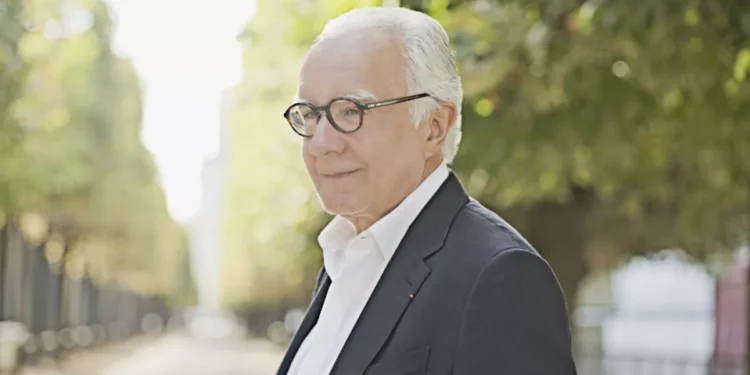In October 2022, Alain Ducasse published, Une Vie de Goûts et de Passions (Good Taste: A Life of Food and Passion), in which the world’s most venerated chef shared his inspirations, obsessions and hopes for gastronomy and its future. Now, a year later, the book has been translated into English, proof of his irrefutable influence within the world of the culinary arts, beyond French borders.
This new publication offers Fine Dining Lovers the chance to talk to Ducasse about his writings, but also about his projects, his aspirations and the message(s) he wishes to pass on to the younger generation, with whom the chef willingly shares his knowledge.
Open up to move forward
In Good Taste: A Life of Food and Passion, one thing in particular stands out: the denial of nostalgia. Indeed, Ducasse is not a chef who looks back and contemplates the work accomplished with melancholy. For him, “It’s wrong to say that things were better before. It’s better today, and it will be even better tomorrow”, he says. The proof is in the tribute he pays to his mentors such as Michel Guérard and Alain Chapel, before adding that while “our roots are essential, we have to open up to move forward.”
Ducasse recalls his childhood on the family farm in the Landes region of France, the awakening to his first tastes, his attachment to the land and the smells that perfumed his childhood bedroom, set up just above the kitchen, asserting that it’s “the stacking of strata, experiences, journeys and cultures that counts” in the end. It must be said that the chef has broadened his horizons by working in Monaco, then Paris, New York, Japan and other Asian countries.

Photo: Aurélie Miquel
Transmission as an essential driving force
The discovery of new cultures, cuisines and techniques has nourished Ducasse throughout his life. With each new escapade, the chef doesn’t just taste, he learns, learns and learns again from the knowledge of others to cultivate his own. This personality trait is also reflected on in France, where he recounts his meeting with Gaston Lenôtre, whom he had asked to teach him how to make viennoiserie. At the time, the young chef voluntarily went to the caterer’s workshops every day to forge his knowledge, with a single idea in mind: to learn everything to better disrupt the codes later on. His leitmotiv: “aggiornamento“, i.e. constant updating to go ever further.
While this ambition has led him to open numerous restaurants in the four corners of the world, Ducasse has diversified his offer by launching, some 10 years ago, his own products – chocolate, coffee, ice cream and biscuits. He has a thirst for learning that he willingly shares with as many people as possible, hoping to leave his mark on the next generation of chefs. The chef is also very optimistic about the future of gastronomy, praising the talents of the men and women he has come across over the years, in France and elsewhere.
“They’re not offering us a revolution, but a re-evolution, quiet but exciting. Not all of them will make a fortune, but there is an incredible possibility, often simpler than what their elders offered… It’s very reassuring,” says Ducasse, who underlines his belief that haute gastronomy should not disappear. According to him, “It must be a beacon, the visible face of the iceberg that serves the entire industry.”
In Good Taste: A Life of Food and Passion, the chef with many Michelin-starred restaurants also looks back at the difficulties he faced during his career, such as his first failures in the US as well as the plane crash he was involved in: he was the only survivor but did not emerge unscathed.
“After the accident,” he says, “I lived without autonomy, not knowing if I would ever be able to walk again, ever see again. I’ve never been so alone.” But with each ordeal, Ducasse has learned a lesson that has enabled him to move forward. In New York, the chef now has several successful restaurants. After his accident, he learned to trust others and to delegate, which enabled him to build the Ducasse empire we know today. “Without that,” he says, “I might never have delegated, and today I see myself more as an artistic director than a chef. Each member of staff brings their own personality to the table and I set the tempo. On my own, I don’t exist.”
After his restaurants, factories, publishing house and cookery schools, does Ducasse still have dreams and goals? “Of course,” he replies, referring to his major project, ‘La Maison du Peuple’ (The People’s House). “It will be a place that brings together all my skills. I’m a chef, an ice cream maker, a chocolatier, and I’ll certainly be ticking off other trades over the next two years… We’re going to sum up all my experience of half a century in a contemporary venue!”
Source: Fine Dining Lovers




Recent Comments